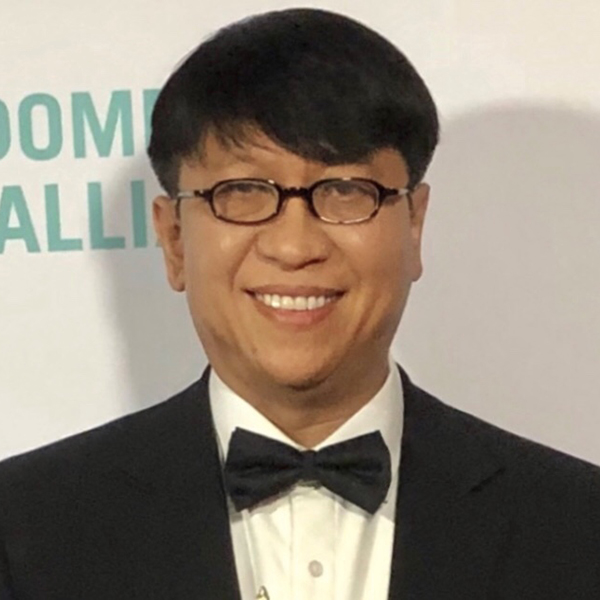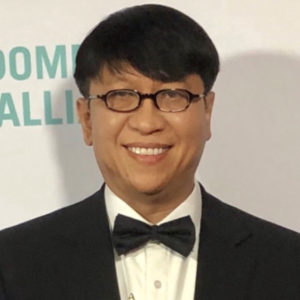We are proud to announce the launch of the CREATIVE CARE COUNCIL! LEARN MORE
We are proud to announce the launch of the CREATIVE CARE COUNCIL! LEARN MORE

We’re excited to feature the voices of caregivers and care workers in our new series, In Their Own Words. Our first interview is with Care Fellow Allen Galeon. Allen is a paid caregiver, and a sandwich generation caregiver for his own family. Read on to find out what brought him to care work, how he cares for his community, and how he thinks systems must change to be more inclusive of all caregivers.

What is your experience as a caregiver, both for your own family and professionally?
I have been a caregiver for more than 13 years now. I have provided care for many elders, going from one household to another, and before the pandemic I could reach up to four households in a week to provide in-person services. But when the pandemic started more than a year ago, I had to maintain only one client to make sure that I’m contributing to the reduction of the potential transmission of the virus.
I am also a Sandwich Generation caregiver for my own family. I help out in taking care of my mother, along with my other siblings. I also take care of my son who is almost five years old. My world revolves around caring for people (and I can’t forget myself!), and also taking care of my community. I am able to provide community support and do activism work through the Pilipino Workers Center (PWC), which provides support for Pilipino domestic workers here in LA.
Can you tell us more about your work at Pilipino Workers Center, and how this has evolved during the pandemic?
I can only source this from my own personal experience and my reach in the caregiving community, but I would say that the Pilipino community has been disproportionately impacted by the COVID-19 pandemic. Our Associate Director Loilta has estimated that about 10 percent of PWC members have been infected with COVID-19, and some of our members have died. The nature of the essential work we do increases our exposure to the virus, but also we have not always gotten the support we need from the government and larger community to help us stay safe.
I provide support for members who have possible exposures to COVID-19. I help people navigate the system, making sure that everyone is aware of where to go for what they need and that they know how to handle quarantining, testing, and vaccination. Within that, we have broader conversations about worker’s rights. We need to make sure that everyone, especially the people doing this essential work, have the support system they need to take care of themselves.
I do a lot of phonebanking to make sure that people are taken care of, especially those who need to be housed so that they can isolate and quarantine safely. At the beginning of the pandemic, this was especially hard, because it was hard to find accurate information and there was a moment in time where people didn’t know where to go. PWC had to shell out its own resources to house people. Once the county Department of Health was able to come up with better ways to take care of the community and provide assistance and support for everyone, it was easier for us to navigate how we could help our members.
Now, we work in coalition with a number of other community based organizations who have really come together for domestic workers during the pandemic. We’re not just working from the point of view of the Pilipino community, but many other communities, including Korean worker organizations and other AAPI worker organizations. This is a community that is really working together.
How did caregiving show up in your family growing up? How has this influenced you becoming a professional caregiver?
My mother was a paid caregiver, and I credit her with why I became a caregiver. At least three of my siblings have been involved in caregiving, and I think it’s because my mother was the very first person who did this work many decades ago. From the get-go we were already drawn to respect this industry, because this work is what put food on our table — it’s why we survived when we were growing up.
Do you find that your cultural and family background influences how you give care?
Most definitely, and I call it a blessing. We were growing up in the Philippines, which is a society that instills in our hearts and minds to respect our elders. I believe that the community will agree with what I just said, but also, being exposed to other cultures, I’m pretty sure that it is a universal ideal to respect elders. As the times change, we are making sure that this heritage is transferred from the older generation to the next one. This is important to preserving our culture, but it’s also just a part of our household, and it’s how we educate the younger generation.
How are our systems of care not set up for AAPI caregivers and families? What needs to change?
Within the AAPI domestic work industry, there is a big discussion around trying to define what dignity and respect is. I came into this particular set of responsibilities believing that you define dignity and respect within yourself, and I was not looking to find dignity and respect within the work. But if society is going to define dignity and respect by the compensation you receive, then so be it! We are going to fight for the compensation we deserve for the essential work we do.
Even if I receive minimum wage, they have to cover us with other benefits like they do in the rest of the world. In California, domestic workers are not considered protected by Cal/OSHA, which defines occupational and safety health standards for workers. That means we can’t get protections if we get hurt on the job, which is a huge problem.
The exclusion of domestic workers from these kinds of protections is traced to racism. We all have different takes on racism, but it’s clear that slavery back in our nation’s history propels the exclusion of domestic workers today. This is quite obsolete, and needs to be fixed. Changes to laws happen in every generation, and we can still do something about these laws in this generation to ensure that these exclusions do not continue.
How can our systems change and improve by being more culturally inclusive and competent?
If marginalized caregiver voices can be heard, we can make real change in our care systems. Caregivers need better compensation, and we must make caregiving jobs good jobs like everyone else’s.
In the past two years, I have learned about a system of governance called sociocracy, which ensures that everyone can have a voice in decision making. Applying that to this question, we can change the culture and our systems by ensuring that caregiver voices can be heard by the rest of society. Inclusion is very important, and if we listen to the very littlest voice, and magnify it, then we can make sure that decision making around our systems is equitable.
What caregivers do every day — the skills that we need in order to help those we care for live longer, and the patience that one has to have to do this job — I think that is worth compensating as much as any other worker out there. We need to make this work and all that goes into it more visible. It’s true that caregivers are often isolated, and so people don’t see the work we do. But we will remain isolated if we don’t speak up. That’s why we are making our voices heard and doing the work we are doing now to change our systems of care.